Call Center Ultimate Guide to Achieving Excellence in 2023
Download the PDF
Submit a Form to Download
The Ultimate Guide to Achieving Excellence in Call Center Services in 2023
In this rapidly evolving digital landscape, where technological advancements and shifting customer expectations are the norm, call centers have transformed into dynamic nerve centers with multifaceted functions. They have evolved beyond mere conduits for addressing customer inquiries and complaints. Today’s call centers play diverse and crucial roles: sales, technical support, customer relationship management, and more.
To effectively navigate the intricate and ever-changing realm of modern call centers, this comprehensive guide serves as your roadmap, guiding you from the initial planning stages to harnessing the power of analytics and beyond. It not only aids in establishing and running your call center operations efficiently but empowers you to anticipate and adapt to future trends.
The bedrock of a high-performing call center is laid long before the first call is made or received. Strategic planning is paramount, as the vision you set at this stage will dictate the following tactical steps. During the initial planning phase, it is crucial to define clear objectives. Will your call center primarily concentrate on delivering exceptional customer service, driving sales, and providing technical support, or will it encompass a blend of these essential functions?
Once your objectives are meticulously outlined, the next step is to select the appropriate call center model—whether inbound, outbound, or hybrid call center. Each model has distinct requirements and challenges; aligning them with your broader organizational goals is paramount. The choice of technology platform follows suit and is often a topic of deliberation. Organizations usually weigh the merits of cloud-based versus on-premises solutions. While cloud-based systems offer enhanced flexibility, on-premises solutions provide more control over data security.
It is very important to emphasize that your chosen technology should seamlessly integrate with your existing Customer Relationship Management (CRM) systems. Furthermore, crafting an Interactive Voice Response (IVR) system with a user-friendly menu is essential, as it significantly enhances the customer experience from the first interaction. Lastly, budgeting plays a pivotal role in shaping the blueprint of your call center. Every component, from technology infrastructure to human resources, carries financial implications that should align harmoniously with your overarching financial plan.
The journey of establishing and maintaining a thriving call center transcends the boundaries of being merely an operational necessity; it is an art and a science combined. It necessitates strategic forethought, consistent training, robust analytical capabilities, an unwavering commitment to compliance with legal and ethical standards, and a steadfast vision for delivering exceptional customer experiences. However, it’s imperative to recognize that the pursuit of excellence only culminates with establishing a well-structured call center.
The world of call centers is in a perpetual state of evolution, characterized by technological advancements, changing legal landscapes, and evolving customer expectations. Therefore, the path toward excellence is not a destination but an ongoing, dynamic process. It entails continuously pushing the boundaries of quality, maintaining adaptability in the face of emerging challenges, and sustaining an unyielding focus on delivering excellent customer service.
Call Center Hiring in the Evolving Landscape of 2023
Call center recruitment in 2023 is a dynamic landscape like no other. With the increasingly competitive job market and technological innovations shaping the required skill sets, call center recruitment presents challenges and opportunities. This article delves into the contemporary landscape of call center recruiting, shedding light on best practices, strategies, and glimpses into the future of this ever-evolving field.
Understanding the Transforming Role of Call Center Agents
Gone are when call center jobs were viewed as temporary or transitional employment. The industry has undergone a significant transformation, and consequently, so has the nature of the work it entails. Modern call center agents are expected to embody many roles, serving as customer service experts, adept communicators, and, at times, technical troubleshooters. They are no longer mere “people on the phone” but integral contributors to shaping customer experiences and satisfaction.
The Pivotal Role of Soft Skills
While technical proficiency remains vital, the spotlight on soft skills such as empathy, active listening, and problem-solving has intensified. In the fast-paced environment of a call center, agents need to exhibit emotional intelligence and excel at multitasking. Evaluating these soft skills can be challenging, but recruitment processes can incorporate behavioral interviews and role-playing exercises to assess them effectively.
Leveraging Technology for Recruitment
Technological advancements have left an indelible mark on recruitment methods:
- Applicant Tracking Systems (ATS): ATS systems have streamlined the application process, enabling recruiters to sift through resumes and identify potential candidates quickly.
- Virtual Interviews: With remote work gaining prominence, virtual interviews have transitioned from exception to norm.
- AI-Powered Skill Assessment: AI algorithms now comprehensively assess a candidate’s suitability by analyzing various metrics, providing insights beyond human analysis.
Navigating Challenges in Call Center Recruitment
Recruitment in the call center industry is not without its hurdles:
- High Turnover Rates: The industry’s reputation for high attrition rates underscores the importance of finding candidates to fill positions and those likely to stay and grow within the company.
- Evolving Skill Sets: Call center roles demand continually evolving skills. Keeping pace with these changes necessitates a flexible and dynamic recruiting strategy.
- Diverse Talent Pool: Call centers often employ individuals from diverse backgrounds and cultures, underscoring the need for inclusive and far-reaching recruitment strategies.
Strategies for Effective Call Center Recruiting in 2023
Success in call center recruiting in 2023 requires a multifaceted approach:
- Cultivate an Employer Brand: A robust employer brand can magnetize high-caliber candidates. Employ social media, employee testimonials, and other channels to cultivate a positive image.
- Employee Referral Programs: Incentivize existing employees to refer potential candidates, recognizing that they can often pinpoint high-quality prospects.
- Prioritize Training and Development: Demonstrating avenues for career growth can significantly appeal to potential candidates.
- Emphasize Culture Fit: While skills can be acquired, a candidate who harmonizes with your corporate culture is a valuable asset.
The Future of Call Center Recruiting
harnessed for secure and transparent employment verification. Additionally, as remote work proliferates, geographical barriers will erode, ushering in a global talent pool for recruiters.
Call center recruiting in 2023 transcends the mere task of filling seats. It involves finding individuals who align with modern call centers’ evolving skill sets and culture. Recruiting recruiters can successfully navigate these challenges by harnessing technology and embracing long-term employer branding and employee development strategies. As we move forward, the fusion of human skills and technological tools will undeniably shape the future of recruiting in the call center industry.
Building a Skilled Army
Nurturing the Potential of Call Center Agents in 2023
Its dedicated agents are at the forefront of every thriving call center. In the complex world of customer service, comprehensive training programs have transformed from mere options to absolute necessities for these agents to thrive.
Training initiates with a robust orientation program that goes beyond their job description; it instills the company’s culture and core values, preparing them for the dynamic call center landscape of 2023.
The Transformative Landscape of Call Center Operations Today’s call centers are far from the traditional hubs for handling customer complaints. They have evolved into integrated operations that offer a spectrum of services, including customer support, technical troubleshooting, and sales initiatives. Agents are no longer just operators; they are the brand ambassadors who interact with customers across various channels, whether it’s through voice, chat, or social media.
Why Training Is Not an Option Anymore The consequences of inadequate training ripple far beyond just unhappy employees; they extend to dissatisfied customers, which can have severe repercussions on the bottom line. In our interconnected digital world, one negative customer experience can quickly snowball through social media, dealing irreparable damage to a company’s reputation.

Essential Components of a Robust Training Program
Orientation and Onboarding
The foundation of training helps newcomers assimilate into the organizational culture, understand their roles, and grasp how they fit into the bigger picture.
Product and Service Knowledge:
Agents are expected to walk encyclopedias of the company’s offerings. Regular updates and training sessions are vital, especially with every new product launch or upgrade.
Soft Skills Training:
Beyond technical prowess, soft skills like emotional intelligence, active listening, and conflict resolution have become pivotal in customer engagement. These skills are an integral part of the curriculum.
Technical Training:
Mastery of the tools and technology used in daily operations is non-negotiable. AGENTS MUST BE PROFICIENT, from CRM software to data analytics tools that inform customer interactions.
Compliance and Legal Awareness:
Agents need to be well-versed in the legal aspects of their interactions, particularly when handling sensitive customer data. Ignorance is no defense in the eyes of the law.
Modern Training Methodologies
E-learning Platforms:
These offer interactive modules that employees can complete at their own pace, making learning more accessible and flexible.
Gamification:
Injecting game elements into the training process can make learning engaging and enjoyable, encouraging participation and knowledge retention.
Virtual Reality (VR):
Immersive role-playing scenarios, especially for customer interaction simulations, enhance the practical aspect of training.
On-the-Job Training
Practical, real-world experience still ranks among the most effective training methods, bridging the gap between theory and practice.
Evaluation and Continuous Improvement Regular evaluations should be integral to the training process. These evaluations can take various forms, including quizzes, role-playing, performance reviews, and soliciting customer feedback. The aim is to identify areas for improvement and adjust training programs accordingly, ensuring they remain practical and relevant.

Modern Training Methodologies
AI-Driven Personalized Learning:
Artificial Intelligence analyzes individual learning patterns and tailors training modules accordingly, offering a more customized learning experience.
Peer-to-Peer Learning:
Encouraging team members to share knowledge and learn from each other leverages internal expertise, fosters teamwork, and creates a culture of continuous learning..
Wellness Programs:
Acknowledging the stress prevalent in customer service environments, wellness programs equip agents with tools to manage stress effectively, promoting their well-being.
In an era where the demands on call center agents are ever-increasing, training emerges as a critical factor in a center’s long-term success. A well-trained agent becomes a more productive and engaged employee, ultimately leading to improved customer satisfaction and business success. To stay competitive in 2023 and beyond, companies must embrace modern training techniques and continuously update their programs.
Moreover, training is not a one-time event; it’s a continuous journey. Agents must continually develop their soft skills, stay updated on industry knowledge, and adapt to changing regulations and technologies. Refresher courses are not just advisable but essential. This ensures quality and safeguards the organization from potential legal repercussions. Training, in essence, becomes an ongoing investment in the future success of the call center and the organization it serves.
The Ever-Evolving Landscape of Call Center Quality Assurance
In the fast-paced world of call centers, where technologies advance, customer expectations evolve, and regulations constantly change, one area that has undergone remarkable transformation is Quality Assurance (QA). As we enter 2023, Quality Assurance is experiencing a revival, infused with Artificial Intelligence (AI), analytics, and a renewed focus on customer satisfaction. This article delves into the latest trends, challenges, and opportunities in call center quality assurance in the present year.
The Shifting Paradigm of Quality Assurance Traditionally, Quality Assurance in call centers centered on compliance and risk management, often relying on manual review processes. Fast forward to today, and the spotlight has shifted towards enhancing customer experience, optimizing operational efficiency, and harnessing the power of technology. Consequently, contemporary QA processes are more dynamic and customer-centric than ever before.
Technological Marvels Driving QA Technology has been a driving force behind the QA revolution. Here’s how it’s shaping the landscape:
AI and Machine Learning: These transformative technologies can analyze vast datasets, identifying patterns, trends, and areas for improvement. They also excel in automating routine QA tasks, liberating human agents to tackle more complex issues.
Speech Analytics: This cutting-edge technology transcribes and analyzes spoken customer interactions, evaluating emotions, tone, and customer satisfaction in real-time.
Data Analytics: Real-time analytics tools empower call centers to adapt strategies on the fly, ensuring higher levels of quality in customer interactions.
Challenges and Solutions in Modern QA While technology brings numerous benefits, it's not without its hurdles:
Data Security:
With technology comes the imperative need for stringent data protection measures. Secure storage and encryption are paramount to comply with regulations like GDPR and HIPAA.
Agent Training:
As AI takes over routine tasks, human agents handle more intricate issues, necessitating advanced training and expertise.
Cost:
Advanced QA technologies often come with a price tag. Nevertheless, the return on investment (ROI) frequently justifies the expenditure, as these tools can significantly enhance efficiency and customer satisfaction.
The resolutions to these challenges often lie in striking a balance, combining technological tools with skilled human intervention.

Best Practices for QA
Multi-channel Monitoring
With customers engaging through various channels like voice, chat, and social media, QA processes must be comprehensive and adaptable to handle the diversity of interactions.
Customer Feedback Integration
The customer’s voice is pivotal in QA. Automated surveys and direct feedback should seamlessly integrate into your QA process to enable data-driven improvements.
Regular Training and Upskilling
As the role of human agents evolves, continuous training programs are indispensable to equip them with the skills needed to navigate complex interactions effectively.
Compliance Checks:
While emphasizing customer experience, it’s crucial to consistently monitor and adhere to industry regulations to steer clear of legal pitfalls.
The Future of QA in Call Centers holds promise, with emerging technologies like Virtual Reality (VR) and the Internet of Things (IoT) poised to play substantial roles in QA. These technologies can offer deeper insights into customer behavior and preferences, further refining quality assurance processes.
In Conclusion, Quality Assurance in call centers has evolved significantly, and as we journey through 2023, technology will continue to be a pivotal driver. However, human expertise remains irreplaceable for handling nuanced interactions and making crucial judgment calls. Ultimately, the future of call center QA lies in a harmonious fusion of technological innovation and human proficiency. Call centers can attain unprecedented quality and customer satisfaction by staying attuned to emerging trends and continuously adapting.
Embracing the Future: Navigating the Changing Landscape of Call Center Operations Management in 2023
In the depths of 2023, the realm of call center operations has undergone a profound transformation, propelled by technology, shifting customer expectations, and the forces of the global market. This article delves into the emerging paradigms that shape this critical business function and offers guidance on navigating them effectively.
The 2023 Call Center Landscape: Beyond Calls Modern call centers have transcended their traditional role as mere call handlers. The significance of multi-channel support, encompassing social media, chatbots, and email, is rising. Operations managers must now possess expertise across these diverse channels to deliver seamless customer experiences.
The Power of Data Analytics Gone are the days when customer service operated in isolation from the rest of the business. Data analytics has assumed a central role in call center operations, influencing decisions spanning staffing levels to the timing of promotional campaigns. Operations managers must adeptly interpret this data, ensuring resource allocation aligns with business needs and uncovering patterns in customer behavior.
Technology’s Ubiquitous Influence From AI-driven chatbots to CRM systems enhanced with machine learning, technology’s impact on call center operations cannot be overstated. Managers must grasp these technologies and understand how to deploy them effectively. For instance, predictive analytics aids in workforce optimization, while machine learning algorithms enhance customer interactions.
Workforce Management in a Hybrid World The global pandemic’s enduring effects have ushered in call centers’ remote and hybrid work models. Operations management must now grapple with building cohesive teams in geographically dispersed settings. This necessitates leveraging technology to monitor performance, facilitate team interactions, and maintain corporate culture and morale in a remote context.
Ensuring Quality and Compliance Quality assurance in call centers is evolving, with an increased focus on customer satisfaction scores over traditional efficiency metrics like average handle time. Moreover, compliance with data protection regulations, such as GDPR and CCPA, demands a robust framework for securely managing customer data. Regular training and audits are indispensable to ensure agents adhere to these ever-changing rules.
Performance Metrics: Beyond the Basics While Key Performance Indicators (KPIs) like First Call Resolution (FCR) and Average Handle Time (AHT) retain their importance, newer metrics like Customer Effort Score (CES) and Net Promoter Score (NPS) are gaining prominence. These metrics offer a more holistic perspective on customer satisfaction and should be integral to any contemporary operations management strategy.
Training and Skill Development In light of the growing complexity of agent responsibilities, training programs in 2023 must be comprehensive and ongoing. Upskilling employees in data analytics, intricate problem-solving, and emotional intelligence is pivotal for thriving in the modern call center landscape.
Operational Agility and Scalability Market dynamics and customer expectations can shift swiftly, demanding agility from call centers. Operations management must prioritize flexible processes and scalable solutions that can evolve with the business environment. This might involve embracing modular technology solutions that can be easily updated and adopting adaptable staffing models.
As 2023 unfolds, the role of the call center operations manager will continue to evolve. Remaining abreast of technological advancements, recognizing the significance of data analytics, and embracing agile operational strategies will be paramount for success. By comprehending and adapting to these trends, call centers can look forward to a future characterized by heightened productivity, efficiency, and customer-centricity.
Embracing the Future: Mastering the Art of Managing Remote Call Center Teams in 2023
2023 has solidified the remote work revolution in various industries, including the call center sector. While the COVID-19 pandemic initially propelled this shift, the enduring benefits of convenience, cost savings, and improved work-life balance have firmly established remote management of call center employees. In this article, we delve into best practices for managers to effectively navigate the challenges and seize the opportunities of this new work environment.
Laying the Foundation for Remote Work Before delving into remote management’s intricacies, establishing a solid foundation is essential. This entails deploying the right technology and tools, from cloud-based call center software to secure VPN-enabled data access. Equally important are training sessions to ensure that your team is well-versed in utilizing these technologies.
Communication as the Cornerstone In a remote setting, effective communication becomes paramount. Regular video meetings, individual check-ins, and team gatherings should be scheduled to maintain alignment among team members. Clear communication channels must be established through Slack or Microsoft Teams to keep everyone informed and nurture a sense of community.
Emphasizing Results Over Hours Worked The conventional 9-to-5 model doesn’t necessarily apply in remote settings. Instead, the focus should shift towards Key Performance Indicators (KPIs) and outcomes. This outcome-based approach not only grants employees greater flexibility but also places a stronger emphasis on meaningful performance metrics, such as customer satisfaction scores or issue resolution rates.
Navigating Time Zone Challenges With remote work, your call center workforce may span different time zones, posing scheduling and workload distribution challenges. To address this, managers should leverage advanced scheduling software to accommodate these variations, ensuring 24/7 coverage without burdening any individual employee.
Monitoring and Analytics for Performance The remote work context demands a more sophisticated approach to performance monitoring. Managers can rely on advanced analytics platforms that track real-time performance metrics. This data is a foundation for decision-making, from identifying training needs to optimizing team composition for peak performance.
Fostering Team Culture and Morale Remote employees can sometimes feel isolated or disconnected from their teams. To counteract this, introduce virtual team-building activities, such as online games or social hours, to uphold a strong team culture. Regular recognition and rewards for outstanding performance are pivotal in boosting morale.
Safeguarding Compliance and Security Remote work introduces unique challenges in upholding compliance and data security standards. Secure data channels, encrypted communications, and continuous compliance training are essential to handle sensitive customer data while meeting all legal requirements responsibly.
Investing in Upskilling and Training Continuous training gains exceptional importance in a remote work environment. Online courses, webinars, and virtual workshops equip employees with the skills to adapt to swiftly evolving technologies and shifting customer expectations. Particular attention should be directed towards soft skills like communication, empathy, and self-management, which are indispensable in a remote setting.
Prioritizing Employee Well-being and Mental Health Managing a remote workforce necessitates a proactive approach to employee well-being. The absence of physical interaction and the risk of overworking makes it crucial for managers to check on their team’s mental health routinely. Some companies introduce online wellness programs or flexible “mental health days” to enable employees to recharge.
As we continue navigating 2023, remote management of call center employees is not merely a temporary adjustment; it’s an enduring transformation. By focusing on communication, results-driven performance metrics, and employee well-being, managers can cultivate a highly effective and cohesive remote call center team. The future may be distributed, but with the right strategies, it can also be more efficient, flexible, and employee-centric than ever before.
Unleashing the Power of Data: Call Center Analytics 2023
Operational excellence in call centers is no longer a mere aspiration but an ongoing commitment, and it demands the prowess of sophisticated data analytics. Tracking key performance indicators (KPIs) like Average Handle Time (AHT), First Call Resolution (FCR), and Customer Satisfaction Scores (CSAT) is no longer a choice; it’s a necessity. These metrics offer a dual advantage. Call centers have historically been the hub of customer interactions, collecting a wealth of data with every call, email, or chat. Yet, the actual value lies in data collection and understanding and effectively utilizing this wealth of information. Welcome to the realm of call center analytics, where actionable insights hold the potential to revolutionize customer service and business operations. This article serves as your guide to the essential facets of analytics in call centers, the benefits it brings, and how to implement it for maximum impact.
At its core, call center analytics involves collecting, analyzing, and interpreting data from customer interactions to enhance service quality, streamline operational efficiency, and refine business strategies. Whether it’s uncovering patterns in customer behavior, evaluating agent performance, or optimizing call routing, analytics offers insights that can significantly influence the bottom line.
However, call center analytics is not merely about numbers and graphs; it’s about giving context to data. To gain a comprehensive view of customer interactions, it’s essential to integrate data from diverse sources, including CRM software, social media platforms, and even Internet of Things (IoT) devices.
While specific metrics may vary depending on your call center’s unique goals, there are universal key performance indicators (KPIs) that consistently provide valuable insights:
- Average Handle Time (AHT)
- First Call Resolution (FCR)
- Customer Satisfaction Score (CSAT)
- Net Promoter Score (NPS)
- Agent Occupancy Rate
- Call Abandonment Rate
In addition, emerging metrics like Customer Effort Score (CES) and emotional analytics are gaining prominence, offering a more nuanced perspective of customer-agent interactions and the overall service experience.
Embracing call center analytics yields benefits that extend well beyond enhanced customer service. For example, it guides managerial decisions about staffing levels, training programs, and marketing strategies. Analytics can also serve as a valuable tool for compliance monitoring, ensuring that your call center aligns with industry regulations and standards.
Here are the key steps to effectively implement call center analytics:
Define Objectives:
Clearly articulate your objectives for employing analytics, whether improving customer satisfaction, reducing costs, or achieving other specific goals.
Select Tools and Platforms:
Choose analytics software that aligns with your objectives and offers scalability to accommodate future growth.
Train the Team:
Ensure your team is proficient in using analytics tools and understands how to interpret the data they generate.
Regular Monitoring and Analysis:
Monitor KPIs and conduct routine data audits to maintain accuracy.
Iterate:
Adapt your analytics strategy to evolving challenges and opportunities in the dynamic customer service landscape.
Real-World Applications: Case Studies
Several companies have harnessed the power of call center analytics to drive improvements:
- A retail giant used predictive analytics to forecast call volumes during holiday seasons, optimizing staffing and reducing wait times.
- A healthcare provider implemented sentiment analysis to gauge patient satisfaction and enhance service offerings.
With the advancements in artificial intelligence and machine learning, call center analytics is evolving into a more sophisticated discipline. These technologies can process and analyze data in real time, providing immediate insights that can be acted upon instantly. Additionally, natural language processing enables examining voice and text interactions, offering qualitative insights into customer sentiment.
The potential of call center analytics is vast and largely untapped. By focusing on the right metrics, implementing robust tools, and nurturing a data-driven culture, you can unlock invaluable insights that can revolutionize your call center operations. As technology advances, analytics capabilities will only grow, making call centers need to adapt and evolve or risk falling behind.
In essence, call center analytics empowers you with macro and micro-level insights. On the one hand, it offers a holistic view of your call center’s performance, shaping decisions related to workforce scheduling, infrastructure investments, and strategic planning. On the other hand, it enables a granular understanding of individual agent performance, facilitating targeted coaching and performance enhancement. Furthermore, analytics extends to customer behavior analysis, enabling the anticipation of customer needs and the prediction of future trends. In essence, call center analytics shifts your focus from a reactive approach to a proactive one, where you can meet customer needs and expectations before they arise.
Navigating the Legal Landscape:
Ensuring Call Center Compliance in the 2023 Digital Era
Call centers are confronted with a complex web of data protection laws in the digital age, making compliance a paramount concern. Regulations such as GDPR, HIPAA, and CCPA have far-reaching implications for customer data collection, storage, and utilization. Failure to adhere to these regulations can result in substantial financial penalties and enduring damage to a company’s reputation.
These legal and compliance challenges are an ever-present reality for the call center industry, where daily customer interactions are the lifeblood of operations. Given the potential for hefty fines and reputational harm, a comprehensive understanding of the legal landscape is imperative. This guide aims to demystify the intricacies surrounding legal and compliance issues within the call center space.
Operating legally compliant is not a checkbox on a to-do list for call centers; it is a fundamental element of sustaining business viability. Beyond the imperative of avoiding penalties, compliance practices establish customer trust and can set a service apart in a competitive market. Furthermore, compliance standards serve as benchmarks for operational transparency and ethical conduct.
Prominent Regulations Impacting Call Centers Numerous regulations govern call center operations, spanning domestic and international jurisdictions. Let’s delve into some of the most significant ones:
- TCPA (Telephone Consumer Protection Act): This US law restricts telemarketing calls, encompassing prerecorded voice messages and auto-dialing systems.
- GDPR (General Data Protection Regulation): A European regulation with global reach, GDPR focuses on data protection and privacy for individuals within the EU and the EEA.
- HIPAA (Health Insurance Portability and Accountability Act): HIPAA ensures the confidential handling of sensitive patient data for healthcare-related call centers.
- PCI-DSS (Payment Card Industry Data Security Standard): PCI-DSS compliance is mandatory to safeguard financial transactions and data storage if your call center processes credit card payments.
- FCC Regulations: The Federal Communications Commission issues guidelines that call centers must adhere to, including specific rules about call recording and customer consent.
Although managing these regulations may seem daunting, a proactive approach can simplify the process. Some of the operational challenges and potential solutions include:
- Data Management: Implement robust CRM software to securely store and manage customer data.
- Training: Regular training sessions can ensure that your staff comprehends the regulations they must follow.
- Audit Trails: Maintain meticulous records of all customer interactions, which prove invaluable in the event of a legal inquiry or audit.
- Legal Consultation: Regularly consult with legal experts specializing in call center compliance to align your operations with current laws.
- Due Diligence: Conduct comprehensive background checks when hiring staff responsible for handling sensitive information.
- Regular Updates: Regulatory environments are constantly in flux. Stay informed about changes and adjust your operations accordingly.
- Customer Transparency: Always inform customers when a call is being recorded and specify the purpose, securing their consent whenever necessary.
- Data Encryption: Employ advanced encryption methods to safeguard data at rest and in transit.
The advent of technology, including Artificial Intelligence (AI) and Machine Learning (ML), presents both advantages and challenges in compliance. These technologies can automate compliance monitoring and introduce ethical and legal considerations such as data bias and accessibility issues.
Legal and compliance concerns in the call center are dynamic, evolving with technological advancements and regulatory shifts. Nevertheless, fundamental principles remain constant: protect consumer data, operate transparently, and continually educate your team. By adopting a proactive and informed stance toward these challenges, not only will you steer clear of legal entanglements, but you will also cultivate a reputation as a trustworthy and dependable service provider.
However, the journey toward quality assurance goes beyond mere compliance checkboxes. Establishing an in-house quality assurance program is equally pivotal. It should encompass automated system checks, human oversight, and regular internal audits to ensure consistent quality across the board. Training modules should also include coverage of comprehensive legal and compliance topics to maintain alignment among all stakeholders. Customer feedback is pivotal in this process, as it offers real-world insights into areas requiring improvement.

Beyond Customer Service
Creating a Holistic Customer Experience in 2023
In today’s customer-centric world, a call center must be more than just a problem-solving hub. It should deliver a comprehensive customer experience beyond answering questions or troubleshooting issues. An excellent call center pre-empts customer needs, offering solutions before problems arise.
Adopting an omnichannel approach is one of the primary trends reshaping the call center landscape in 2023. This approach goes beyond traditional customer service and allows seamless customer interaction across multiple platforms, including voice, email, chat, and social media. It’s about meeting customers where they are and providing consistent service regardless of their chosen channel.
Omnichannel engagement enhances customer satisfaction and equips agents with a 360-degree view of the customer. This comprehensive perspective enables more personalized service, as agents can access a customer’s interaction history across various channels. This holistic approach often distinguishes an exceptional call center from an average one. It’s a shift from merely addressing customer issues to building long-term relationships.
Artificial Intelligence (AI) is another major player in enhancing call center customer experiences in 2023. AI-driven chatbots and virtual assistants have become increasingly sophisticated, enabling them to handle routine inquiries and tasks. This automation speeds up response times and frees human agents to focus on complex issues, resulting in higher efficiency and customer satisfaction.
AI also empowers personalization at scale. Advanced CRM systems and data analytics allow call center agents to quickly access a customer’s history and preferences. This information will enable agents to tailor their interactions to make customers feel valued and understood. Personalization goes a long way in improving customer satisfaction and creates opportunities for cross-selling and upselling.
Predictive analytics is revolutionizing how call centers operate. Call centers can anticipate customer needs and proactively address issues by analyzing customer data and historical interactions. Instead of merely reacting to problems, call centers are moving towards offering solutions before customers even realize they have a problem. This proactive approach not only boosts customer loyalty but also reduces churn rates.
The COVID-19 pandemic accelerated the adoption of remote work in call centers, and in 2023, many call center agents continue to work remotely. To support this shift, businesses have invested in technologies that facilitate effective remote workforce management. This change has increased agent flexibility, allowing them to provide support from anywhere while maintaining high productivity.
Real-time feedback mechanisms have become essential for gauging customer satisfaction and making immediate improvements. Tools like post-interaction surveys and sentiment analysis capture customer sentiments as they happen. This real-time feedback loop helps identify areas for improvement and enables agents to address issues promptly.
With data privacy regulations like GDPR and CCPA in place, call centers are doubling down on data security and compliance. Ensuring that customer data is handled responsibly and by legal requirements is paramount. Customers are more likely to trust call centers that prioritize data security, which, in turn, enhances their overall experience.
Emotional intelligence is becoming a crucial skill for call center agents. Understanding and empathizing with customers’ emotions can defuse tense situations and create positive interactions. Call centers are investing in training programs focusing on emotional intelligence to improve customer interactions and foster customer loyalty.
In 2023, the call center landscape is evolving to meet the ever-changing demands of customers. Omnichannel engagement, AI-powered assistance, predictive analytics, personalization, remote workforce management, real-time feedback, data security, and emotional intelligence contribute to a more robust and satisfying customer experience. Businesses that embrace these trends and prioritize customer-centric approaches will thrive in the competitive call center industry, ultimately delivering outstanding experiences that keep customers returning. As we move further into this digital age, one thing is clear: the call center customer experience in 2023 is defined by adaptability, technology, and a deep commitment to customer satisfaction.
Adapting to Tomorrow
AI Revolutionizing the 2023 Call Center Landscape
Advancements in technology are rapidly reshaping the landscape of call center services, and standing at the forefront of this transformation are Artificial Intelligence (AI) and machine learning. The future is bright and increasingly automated, from AI-driven chatbots handling routine queries to sophisticated machine learning algorithms analyzing customer data for personalized service. The customer service landscape is undergoing a seismic shift, with Artificial Intelligence (AI) at the epicenter of this transformation. From automating mundane tasks to predicting customer behavior, AI is not merely a supporting technology; it is becoming integral to call center operations. This comprehensive article explores how AI is revolutionizing the call center industry, bringing in a new age of efficiency, customer satisfaction, and strategic value.
Gone are the days when a customer had to navigate multiple layers of automated phone menus only to wait for an agent. With AI-powered virtual assistants, routine queries can be handled with precision, speed, and a human-like touch. These bots use natural language processing to comprehend customer queries, provide solutions, and even escalate issues when necessary.
However, the automation continues beyond customer interactions. It extends to internal processes like data entry, analytics, and agent scheduling. By automating repetitive tasks, AI frees up human agents to focus on more complex, value-adding activities, such as handling complicated customer issues or conducting in-depth analysis of customer behavior patterns.
AI brings a robust analytical toolkit to call centers. Traditional Key Performance Indicators (KPIs) like Average Handle Time (AHT) and First Call Resolution (FCR) can be supplemented with advanced metrics derived from AI algorithms. This adds depth to the data, allowing managers to delve into agent performance, customer satisfaction, and operational efficiency in ways never possible before.
By incorporating machine learning, these algorithms continuously learn from the data they process, offering predictive insights. For instance, AI can forecast call volumes during specific times, allowing for better staffing decisions. It can also predict customer satisfaction based on historical data and current interactions, enabling proactive problem-solving.
AI can analyze vast data points to gain a 360-degree view of the customer. By leveraging this data, call centers can offer a highly personalized customer experience beyond just using the customer’s first name. Recommendations can be tailor-made based on customer history, preferences, and mood, as discerned from voice cues or text inputs.
The AI algorithms can also guide human agents in real time during customer interactions. These ‘whisper agents’ can suggest responses, solutions, or up-sell and cross-sell opportunities, making each interaction more impactful and potentially profitable.
The benefits of AI in call centers extend to the professional development of human agents. AI can analyze recorded calls, customer feedback, and other metrics to evaluate agent performance. This data can be used to create individualized training programs, ensuring that agents receive coaching in areas where they need it the most.
The benefits of AI in call centers extend to the professional development of human agents. AI can analyze recorded calls, customer feedback, and other metrics to evaluate agent performance. This data can be used to create individualized training programs, ensuring that agents receive coaching in areas where they need it the most.
Additionally, AI can offer real-time support to agents. By analyzing the ongoing conversation, AI systems can prompt agents with potential solutions or even regulatory guidelines to consider, reducing the need for after-call work and enhancing the quality of customer interactions.
Ethical and Compliance Challenges
While AI brings numerous advantages, it also presents ethical and compliance challenges. Customer data must be handled securely to comply with regulations like GDPR, HIPAA, and others. Discriminatory or biased algorithms can also pose problems. Therefore, the deployment of AI in call centers must be accompanied by a robust framework to ensure ethical use and regulatory compliance.
The Ever-Evolving AI Landscape
AI’s role in call centers is not static; it’s evolving rapidly with advancements in machine learning, natural language processing, and data analytics. The future may see the rise of emotional AI, which can detect customer emotions through voice and text, and quantum computing, which can process complex algorithms in fractions of a second. These future technologies will only deepen the impact of AI, making it an indispensable tool for modern call centers.
AI redefines what call centers can achieve, from automating routine tasks to providing invaluable insights and a hyper-personalized customer experience. Its impact is far-reaching, affecting every facet of call center operations. As AI technology continues to evolve, it promises even more revolutionary changes. However, it also requires a thoughtful approach to implementation, ensuring compliance with ethical and legal standards. What is clear is that AI is no longer an optional add-on but a necessity for any call center looking to thrive in today’s competitive and ever-changing landscape.
Wrapping Up on AI
However, technology should not be adopted merely for being cutting-edge. Its utility and ROI should be carefully considered, and staff should be adequately trained to integrate these new tools into existing processes. Failing to prepare for these technological shifts could result in being left behind by competitors who are quicker to adapt. Thus, your strategy should include a roadmap for incorporating emerging technologies, assessed against their potential to drive operational efficiencies and customer satisfaction. AI redefines what call centers can achieve, from automating routine tasks to providing invaluable insights and a hyper-personalized customer experience. Its impact is far-reaching, affecting every facet of call center operations. As AI technology continues to evolve, it promises even more revolutionary changes. However, it also requires a thoughtful approach to implementation, ensuring compliance with ethical and legal standards. What is clear is that AI is no longer an optional add-on but a necessity for any call center looking to thrive in today’s competitive and ever-changing landscape.
In Conclusion
Navigating the Dynamic Landscape of Call Centers in 2023
Establishing and nurturing a high-performing call center in the ever-evolving landscape 2023 requires a multifaceted approach. It’s not just about adhering to a set of rules but a delicate blend of art and science. Success in this arena hinges on strategic planning, continuous training, meticulous data analysis, unwavering compliance, and an unwavering commitment to delivering unparalleled customer experiences.
However, it’s crucial to recognize that the journey toward call center excellence is still dynamic. The call center industry is in a state of perpetual transformation. In 2023, these changes are particularly pronounced, with three significant dynamics at play:
Technological Evolution:
Call centers increasingly rely on advanced technologies like Artificial Intelligence (AI), machine learning, and data analytics. These innovations reshape interactions, provide real-time insights, and streamline processes. Call centers must embrace these technologies and adapt and grow with them to stay ahead.
Legal and Regulatory Shifts:
The legal and regulatory landscape governing call center operations continuously evolves. Stringent data protection laws like GDPR and CCPA demand rigorous compliance. Keeping abreast of these changes and implementing robust measures to protect customer data is paramount to avoiding hefty fines and reputational damage.
Evolving Customer Expectations:
In 2023, customers expect more than problem-solving; they demand holistic, personalized experiences. Meeting these expectations requires a profound understanding of customer preferences, behavior, and emotions. Call centers must leverage AI-driven insights to anticipate needs, enhance personalization, and foster long-lasting customer relationships.
In light of these transformative forces, it’s evident that the path to call center mastery is an ongoing journey. The destination remains elusive because there is no endpoint. Instead, it’s a continuous improvement, adaptation, and innovation process.
As you navigate the dynamic call center landscape of 2023, remember to:
- Embrace Technology: Be open to incorporating cutting-edge technologies into your operations. AI, machine learning, and data analytics are your allies in delivering exceptional service.
- Prioritize Compliance: Stay vigilant regarding compliance with ever-changing data protection regulations. Make data security and privacy integral to your call center’s culture.
- Evolve with Customer Expectations: Anticipate and exceed customer expectations by harnessing AI to deliver personalized and emotionally intelligent experiences.
- Cultivate a Learning Culture: Encourage continuous learning and development within your call center team. Equip them with the skills and knowledge needed to thrive in a rapidly changing environment.
- Stay Agile: Be flexible and agile in responding to new challenges and opportunities. Adapt your strategies and operations as the landscape evolves.
In summary, the road to call center excellence in 2023 is characterized by adaptability, technology integration, legal diligence, and a relentless focus on meeting evolving customer needs. Remember, it’s not about reaching a destination; it’s about embarking on a perpetual journey toward delivering superior customer service in a dynamic world.
About MCI
MCI is an American multinational conglomerate holding company headquartered in Miami Beach, FL, USA. With a diverse lineup of tech-enabled business services MCI’s offering range from Artificial Intelligence (AI), Contact Center Business Process Outsourcing (BPO), Customer Experience (CX) solutions, and Anything-as-a-Service (XaaS) cloud technology applications. MCI, operating in seven countries, organically grows, acquires, and operates companies with synergistic adjacent products and services portfolios. MCI and our subsidiaries have been on Inc.’s List of Fastest Growing Privately Held Companies 18 of the last 20 years. MCI Group’s holdings are: BPOaaS, BYC Aqua, Byron Yeats, East West BPO, GravisApps, Gravis Marketing, March East, Market Force, Mass Markets, MCI BPO, MCI Federal Services, OnBrand24, Sydney Call Centre, Teletechnology, Valor Intelligent Processing, and Vinculum. For more information about the MCI Group, please visit www.mci.world.

















